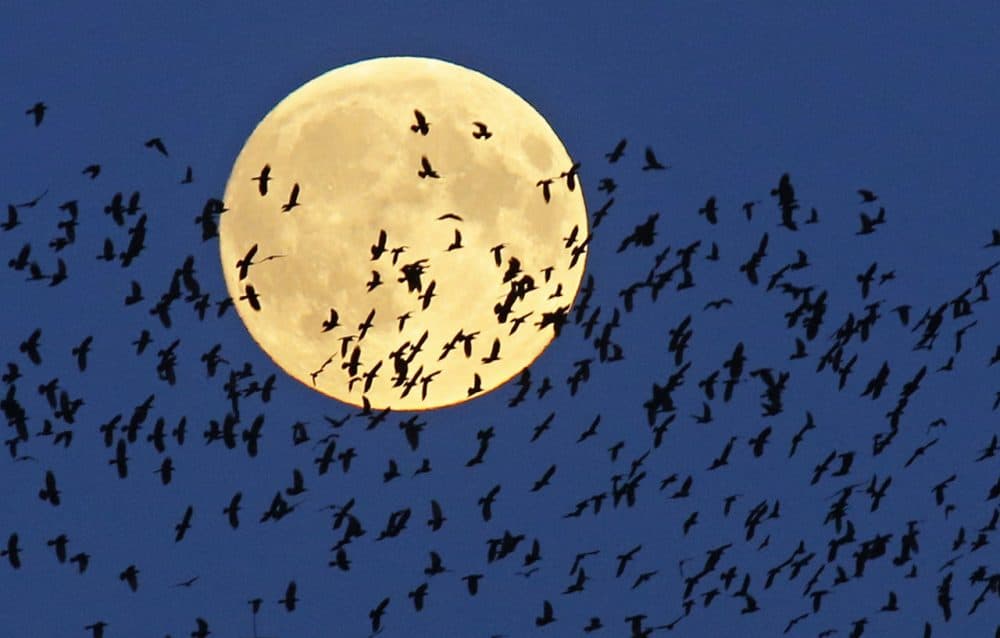Advertisement
Massachusetts Lawmakers Propose Bill To Fight Light Pollution

It might not feel like it yet, but they tell us that soon it will be comfortably warm enough outside at night to do some stargazing.
Depending on where you live, though, that may be more difficult to do because worldwide the night sky is becoming 2.2 percent brighter each year.
Now, at the start of International Dark Sky Week, Massachusetts lawmakers are considering bills that would reduce light pollution — perhaps make stargazing a little easier — in part by changing the bulbs used in street lights.
Guest
J. Kelly Beatty, contributing editor of Sky and Telescope Magazine. He helped write the bill and tweets @nightskyguy.
Interview Highlights
On skies getting brighter
"Most Americans — the vast majority — can't see the Milky Way anymore. And those of us of a certain age recall that there was was a time when the skies were really dark and beautiful and you could steep yourself in them, and sadly, that's rarely the case anymore."
On why we should care about a darker sky
"There's also an energy component to this. All that light going into the sky wastes energy that could be used elsewhere or not generated at all. And finally, light at night is really disruptive to all manner of environments — the nocturnal environment, critters that go bump in the night. Even we humans, our melatonin cycle, our day-night cycle, is disrupted by the intrusion of light at night."
On what the light pollution pill is proposing
"First of all, it would require cities and towns to — if they're installing new lights or replacing old ones — to adhere to a couple criteria to make those lights better, more environmentally friendly. One is that all the lights should be pointed down, not up. That's sort of common sense. The other is that they would have a color temperature that has a warmness of no higher than 3,000 Kelvin. I know that sounds technical but it's sort of instead of bluish lights, the lights would have a warm cast, sort of like an incandescent bulb ...
The second part is that we would ask the Department of Transportation, statewide, to adopt best practices for lighting along highways, and can they use other means like better striping instead of lights.
The third thing — this is actually important for towns — is that we want to install a set of electricity rates that would reward towns for using economical, energy-efficient LED lights all the time. That's not always the case now."
This article was originally published on April 01, 2019.
This segment aired on April 1, 2019.

